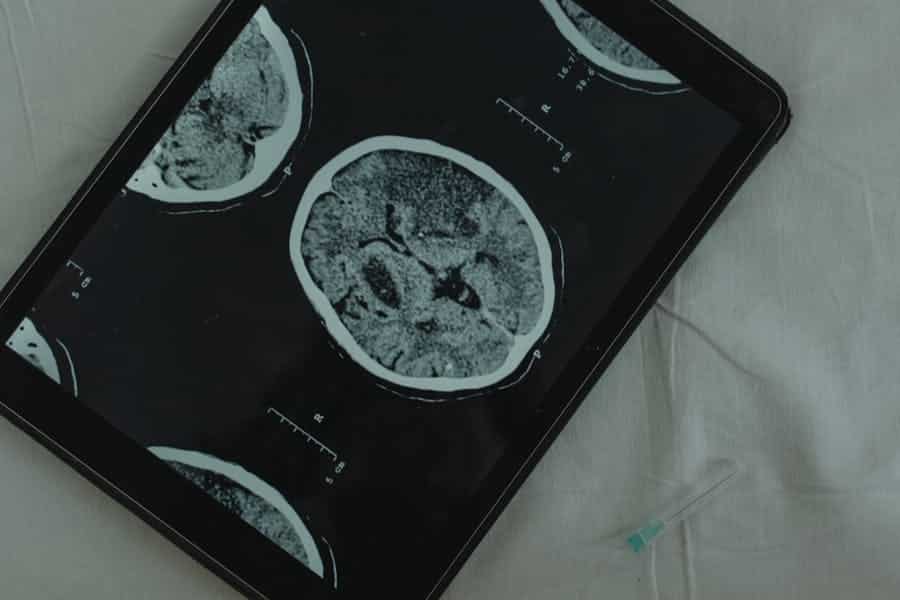
Understanding legal rights and choices post-brain injury is essential. This involves learning protective laws, accessing quality care and rehabilitation, and hiring a personal injury lawyer. It enables compensation avenues, insurance claim insights, and effective court process navigation. The goal is not only justice but also comprehensive financial recovery from such a disaster. Understanding where to start is paramount.
Understanding Brain Injury Basics
Brain injury, a trauma disrupting normal brain function, can lead to cognitive, physical, and emotional impairments. Its impact spans a lifetime, affecting both the victim and their family members’ quality of life.
Brain injury prevention, crucial in high-risk environments and activities, lowers incidence rates via safety measures like protective headgear and understanding activity-specific risks.
In cases of brain injuries, tailored rehabilitation strategies are key in managing and improving the condition. These strategies aim to restore lost functions, assist survivors in relearning skills, and enhance their ability to perform daily activities.
Identifying Your Legal Rights
Recognizing your rights after a brain injury is crucial. This comprehension hinges on two aspects: brain injury legislation and compensation exploration. This conversation aims to equip you with necessary insights to smoothly navigate these intricate legal terrains.
Understanding Brain Injury Laws
Brain injury laws protect victims by providing a legal framework for prevention and rehabilitation. These laws acknowledge the serious impacts of brain injuries, mandating comprehensive care, support and protection of victims’ rights. Laws enforce safety standards in consumer products, traffic, sports, and workplaces to prevent brain injuries, also requiring protective equipment use, such as helmets. Rehabilitation-focused laws ensure victims access proper medical treatment, therapy services, and community support to recover independence and life quality. Awareness of these laws allows brain injury victims to assert their rights and secure necessary assistance.
Exploring Compensation Possibilities
Navigating brain injury laws, your legal rights can lead to compensation options. The rights include monetary recovery for injury costs. Crucial to this process is rehabilitation funding, covering immediate medical expenses and ongoing costs for therapeutic advancements and long-term care.
Each brain injury case is distinct, potentially entitling victims to compensation for aspects like pain, suffering, loss of earning capacity, lifelong medical and rehabilitation expenses. The legal field of brain injuries is complex, but identifying and asserting your rights secures essential rehabilitation funding.
Evaluating Potential Compensation
After recognizing your legal rights following a brain injury, it’s crucial to assess potential compensation. This step comprises comprehending damage calculations and investigating accessible legal paths. We will meticulously dissect these points, ensuring your proficiency in navigating this intricate landscape.
Understanding Damage Calculations
Compensation for brain injury includes calculating damages like medical expenses, loss of earning capacity, pain, suffering, and possible punitive damages. Medical expenses involve costs for neurological therapies such as neurofeedback and cognitive rehabilitation vital for cognitive restoration and recovery. Rehabilitation costs include physical and speech therapy, and other specialized treatments to regain functionality.
Loss of earning capacity considers not just lost wages, but the victim’s reduced future earning ability due to diminished physical and cognitive abilities. Non-economic damages like pain and suffering, though harder to quantify, are significant.
Punitive damages, awarded in exceptional cases, punish the defendant for egregious negligence or intentional harm. Calculating these demands understanding of the law and case specifics, emphasizing the need for professional legal advice.
Exploring Legal Avenues
Navigating the intricate legal terrain for brain injury compensation necessitates comprehensive knowledge of potential legal paths, especially for compensation evaluation. The brain injury legal sector is complex, offering various routes for rightful compensation.
Negligence and liability form key considerations. If another’s negligence caused the injury, a robust personal injury lawsuit may ensue. This includes medical malpractice, occupational hazards, or accidents from insufficient brain injury prevention.
Product liability can be applicable if a faulty product, like defective safety equipment, caused the injury. Manufacturers might bear compensation responsibility.
Rehabilitation strategy costs factor into legal claims. Ongoing and future care costs, therapy, adaptive equipment, and home or vehicle modifications can contribute to compensation. Impact on earning capacity is also considered.
Emotional distress, pain, and suffering, despite being intangible, contribute to potential compensation. Each case is unique, and expert attorney guidance can be crucial in navigating this complex legal environment.
Engaging a Personal Injury Lawyer
When facing a brain injury, hiring a skilled personal injury lawyer is crucial to protect your rights and navigate the legal complexities. The selection of a lawyer should be thoughtful and unhurried, as your case’s outcome significantly affects your future life quality.
Evaluating a lawyer’s track record in handling brain injury cases is an initial step. A lawyer’s experience, skills, and knowledge in this niche can sway your claim’s success. Choose a lawyer who exhibits empathy and understanding for your situation, ensuring diligent case handling.
Consider fee structures in the selection process. Lawyers may propose different fee arrangements like contingency fees, hourly rates, or flat fees. Understand these charges and their impact on your budget. The goal is to secure a lawyer who can advocate for your rights affordably and transparently.
Navigating Insurance Claims
Processing insurance claims post brain injury demands intricate attention to detail and comprehensive policy understanding. Challenges include claim denials and settlement negotiations.
Claim denials, common for brain injury victims, can occur due to alleged policy violations, medical report discrepancies, or undisclosed pre-existing conditions. Knowledge of policy terms and accurate information provision are key to counter such rejections.
Settlement negotiations, a significant part of the process, influence the received monetary compensation. Consulting a legal advisor or attorney specializing in insurance claims and personal injury cases ensures fair negotiation outcomes.
The Role of Medical Experts
Medical expert witnesses, typically neurologists or neurosurgeons, are pivotal in brain injury litigation. They simplify complex medical data for court comprehension, influencing judgment outcomes, particularly in medical malpractice cases. These experts elucidate injury extent, causation, and prognosis, validating if the brain damage resulted from the accused party’s actions or an unrelated cause. They also assess if the standard of care was breached in malpractice suits.
An expert witness’s reliability is critical, requiring excellent credentials and effective communication skills for presenting findings persuasively. The selection of a suitable medical expert can significantly enhance a claim’s success, while a poor choice may undermine it.
Managing Long-Term Consequences
Handling long-term impacts of brain injury necessitates strategic planning and comprehension of the recovery’s enduring nature. Rehabilitation strategies, encompassing occupational, speech, and physical therapies, are essential for enhancing cognitive and motor skills, fostering independence, and improving life quality. Emotional support, sourced from family, friends, support groups, or professional therapists, is critical for fostering resilience, enhancing coping skills, and maintaining emotional well-being post-injury.
The Court Process Explained
Navigating the court process post-brain injury is crucial for asserting legal rights and seeking compensation. It necessitates comprehension of legal jargon and adherence to courtroom decorum.
Legal jargon includes terms like ‘plaintiff’ (lawsuit initiator), and ‘defendant’ (accused party). Crucial phrases like ‘burden of proof’ (obligation to present evidence of defendant’s guilt) need understanding.
Courtroom decorum involves respectful, professional demeanor, including appropriate attire, correct judge addressal, and respectful behavior towards all courtroom personnel.
Knowledge of court process, legal jargon, and courtroom decorum are essential post-brain injury legal steps. Legal professionals provide guidance and support throughout the journey.
Frequently Asked Questions
What Support Groups Are Available for Brain Injury Survivors and Their Families?
Support groups for brain injury survivors and their families, such as the Brain Injury Association of America and local community groups, provide emotional coping strategies and financial assistance guidance.
How Can Brain Injuries Affect Mental Health in the Long Term?
Brain injuries can induce long-term mental health effects, potentially triggering depression and anxiety. Timely intervention and suitable rehabilitative therapies are crucial for effective management.
Can Diet and Lifestyle Changes Help in Recovery After a Brain Injury?
Indeed, post-brain injury recovery can be significantly enhanced by dietary and lifestyle modifications. Optimal nutrition is crucial, and regular physical activity can boost cognitive function and overall health.
Are There Any Assistive Technologies Available for Individuals Suffering From Brain Injuries?
Indeed, assistive technologies exist for brain injury patients. These include communication aids and cognitive tools, enhancing recovery and life quality.
What Are Some Educational Resources for Understanding the Psychological Impact of Brain Injuries?
Understanding the psychological impact of brain injuries involves resources like medical journals, the Brain Injury Association of America’s website, and books about post-injury cognitive changes and rehabilitation.





